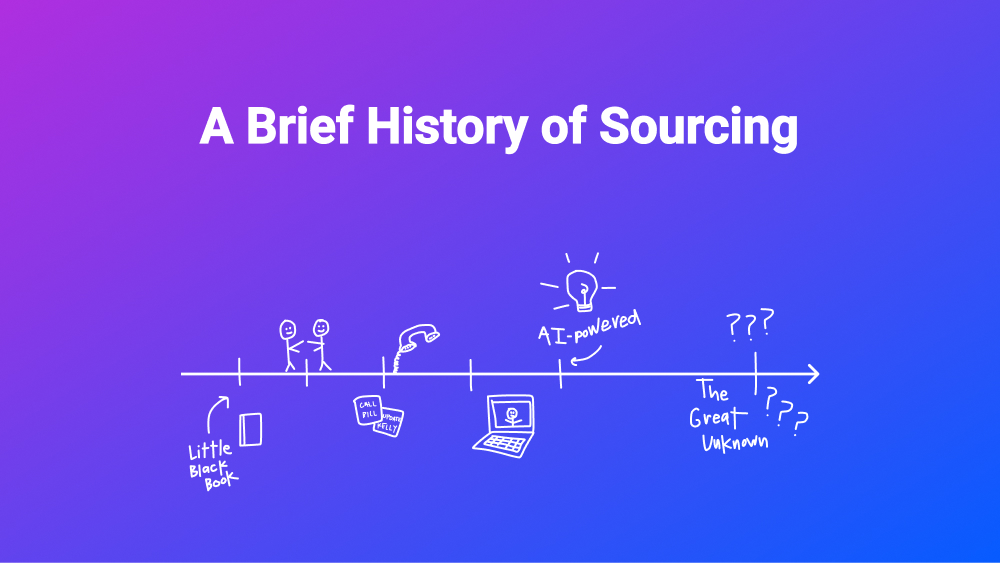Artificial intelligence has taken large strides in recent years and shifted the way that recruiters find talent and interact with the recruiting process. AI recruiting has allowed recruiters to source candidates more efficiently, eliminate bias, and streamline tedious and time-consuming tasks in the recruiting process.Talent Intelligence has emerged out of this digital shift and has distinguished itself as a central aspect of intelligent recruiting. Talent intelligence is, in short, the process of data collection and analytics as a means to assess and improve talent quality, candidate experience, and key recruiting metrics.Talent intelligence is about minimizing the tedious tasks that computers can handle and giving your team more time to make connections, develop strategies, and deal with the “human” aspects of recruitment.Below is everything you need to know about the rise of talent intelligence recruitment.
What is Talent Intelligence?
Talent intelligence isn’t simply about the data that recruiters gather; it’s about understanding which areas of the recruiting process can be delegated to technology and how best to utilize that information. With talent intelligence, you’re relying on things like your CRM to identify recruitment patterns, trends, and to track candidates. If you need to source candidates, you can utilize AI candidate sourcing automation technology so that you don’t have to spend hours to come up with a few viable candidates. With talent intelligence applications, you can streamline the tedious processes of screening, sourcing, and evaluating talent quality with a click of a button, saving you both time and money. Talent intelligence relies on technology, databases, and analytics to improve the important recruiting metrics at the fastest and cheapest rates.What is talent intelligence? Talent intelligence is about refocusing time and energy spent on tasks that technology can handle and shifting that energy to the human aspects of recruiting--interviews, meetings, candidate experience, and long-term strategy development, among others.
Talent Business Intelligence
Over the past ten years, business intelligence has become one of the most talked about and anticipated terms in business and recruiting. In fact, 85% of business leaders across the world have said that big data will dramatically change the way companies do business. Business intelligence is an umbrella term that describes the way in which companies analyze, sort, and access key business information in order to identify insights from the data that they store. When it comes to recruiting, this is more than just talent acquisition. Talent business intelligence will help recruiters develop benchmarks, KPIs, and evaluate the big-picture decisions of where their company is heading. You can evaluate not only important hiring metrics, but also performance and overall efficiency. Business intelligence relies on data from website traffic, closed deal analyses, and interaction analytics. The first step to understanding and building from the data is having the right tools, like a CRM, to store and make sense of the data. Beyond that, companies should weigh up their potential business solutions in order to see if their long-term goals are in line with quarterly data reports.
Talent Intelligence Recruitment Best Practices
When applying any new technology or shift in practices, it’s important to do so in a way as seamless and comprehensible as possible. In order to make the transition simple enough for your employees and team members, you’re relying on two important aspects: ease of technology and ease of integration.
- Technology: When it comes to technology, you need software that will be easy to use and simple to manage. This means that it needs to have an appealing design, simple navigation features, and a reliable system. There’s no use in integrating a powerful CRM/ATS if the software is too complicated for your team to pick up..
- Compatibility: Decide which departments will most likely rely on talent intelligence recruitment and are most compatible with its applications. Additionally, you should look into any existing technologies that you already use and see if the software can integrate easily into your system. Even with an outdated data storage system, you don’t want all the information you’ve culled together to go to waste.
- Implementation: How many teams will utilize the new technology? If enough departments rely on using the technology together, exchanging information throughout the recruiting process, it might be worthwhile to have a week of training where the technology can be implemented throughout the various departments.
It’s only a matter of time before talent intelligence recruitment practices become ubiquitous in the recruiting world. Getting a head start on integrating AI recruiting applications into your agency will help make for a smoother transition and allow you to begin building a foundation of information to build upon.Loxo is leading the way when it comes to innovations in sourcing automation and recruiting AI. Our state-of-the-art ATS and CRM is a simple, comprehensive system that will allow you to store and manage data with ease. Get up to speed with the industry’s technological advancements and get your Loxo demo today.
Become a hiring machine
Ready to see for yourself how Loxo can transform your recruitment workflow and make you more efficient than ever before? We thought you might be.




